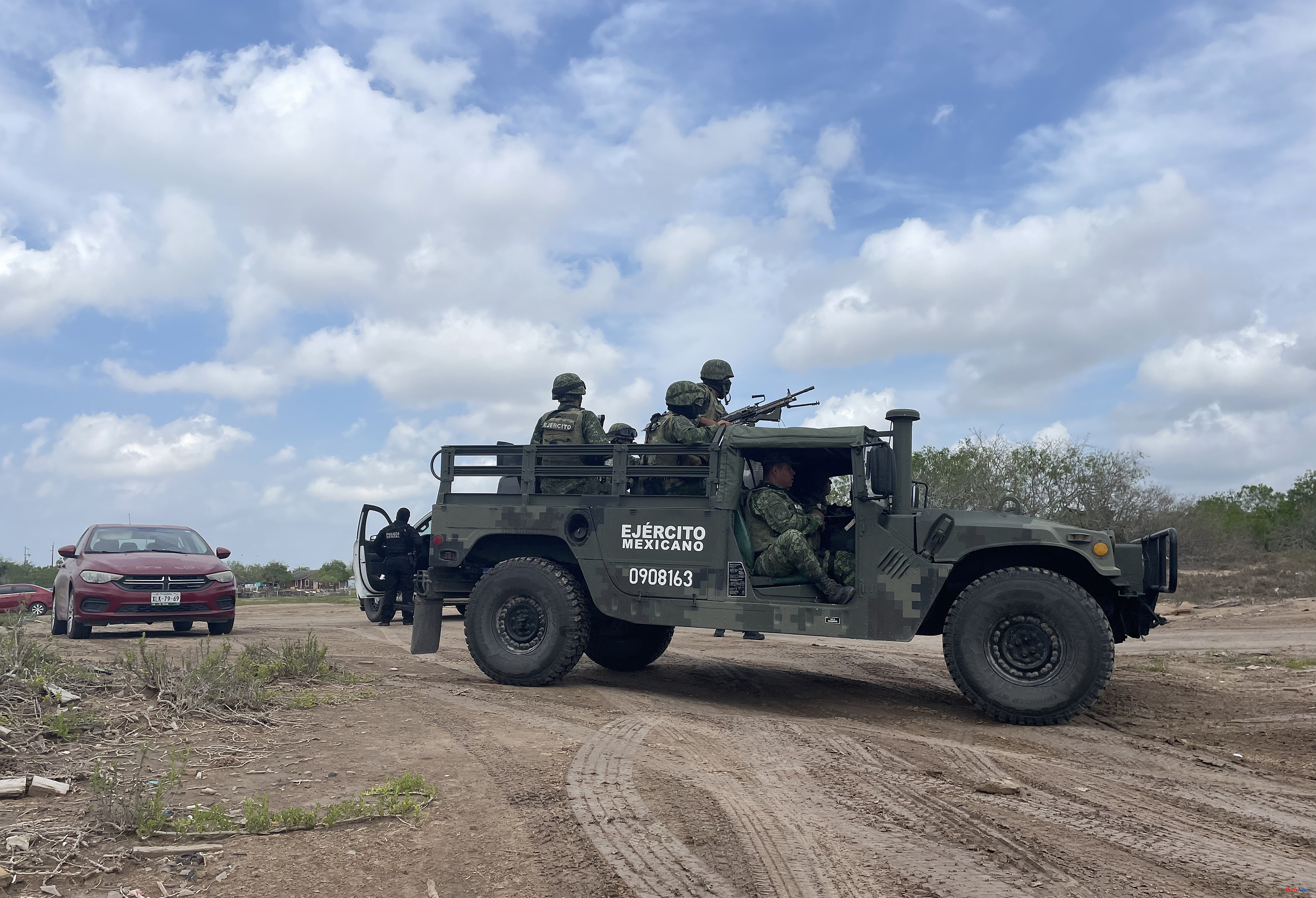Two of the four Americans kidnapped last Friday in Matamoros (northeast Mexico) were found dead on Tuesday, reported Mexican authorities, who suspect that the captors - alleged drug traffickers - confused them with other people.
The other two hostages were rescued alive and handed over to US authorities at the border bridge that joins the cities of Matamoros and Brownsville, while the deceased will be repatriated "in the next few hours" after the autopsy, said Américo Villarreal, state governor. from Tamaulipas.
One of the survivors, identified only as Eric N., suffered a gunshot wound to the leg, while a woman (Latavia N.) escaped unharmed, the governor said during a press conference with the military high command in Mexico City.
The US media identified them as Latavia Washington McGee and Eric James Williams. The names of the deceased have not yet been released.
"The Department of Justice will be relentless in the pursuit of justice on your behalf," said US Attorney General Merrick Garland, quoted in a statement.
Meanwhile, the US ambassador to Mexico, Ken Salazar, said in a statement that these events "are a tragic reminder" that both countries must "strengthen the fight against criminal organizations" on the border.
A man in charge of monitoring the victims was detained at the place where they were being held captive, a wooden house in the suburban area of Matamoros.
The handover of the survivors occurred in the midst of a vast arrangement that involved some 20 vehicles including ambulances and vans from security agencies, observed an AFP collaborator.
Mexican authorities believe the kidnappers belong to the Gulf Cartel and have mistaken the Americans for enemies.
"The line (investigative) is being strengthened that it was a confusion, it was not a direct aggression. That is the line that we now have as the most viable and surely it is the most correct," said the Tamaulipas prosecutor, Irving Barrios, in the same conference. However, he clarified that all the hypotheses remain open.
The Americans had arrived in Matamoros on Friday morning in a van that was attacked by gunmen some two hours later, according to investigations revealed on Tuesday. A 33-year-old Mexican woman died near the scene, possibly the victim of a stray bullet, according to the investigations.
The governor of Tamaulipas stated that "there is no basis to think" that the victims had "some relationship" with the United States federal police (FBI), as was speculated on social networks.
According to the governor, the Americans were in Mexico because one of them was planning to have cosmetic surgery.
The Mexican officials avoided advancing hypotheses about the circumstances of the time and place in which the captives died.
"Once the autopsy is done, we will be able to determine the causes of death, the times and other" elements, the prosecutor said.
According to preliminary investigations, all the hostages were alive at least until Monday.
"During the three days after the criminal act, the four people deprived of their liberty were transferred to various places, including a clinic, in order to create confusion and avoid rescue efforts," said the governor.
Villarreal said that the investigations to find the other criminals will be supported by the United States, which offered $50,000 to locate the victims and capture the kidnappers.
Mexican President Andrés Manuel López Obrador lamented the death of the hostages. "We send our condolences to the families of the victims, to friends, to the people of the United States, to the government of the United States (...). We will continue to do our job to guarantee peace, tranquility," he said. .
"Those responsible are going to be found, they are going to be punished, as was done when they unfortunately murdered women and children (...) of the LeBarón, Miller, Langford family. All those involved were arrested," he warned.
He was referring to the massacre, in November 2019, of six minors and three women from a Mexican-American Mormon community, settled in the state of Sonora (north).
Mexico has accumulated some 350,000 homicides and tens of thousands of disappeared since a controversial anti-drug offensive was launched in 2006, with military participation and support from the United States.
Matamoros is one of the towns hardest hit by organized crime.
In addition, the roads of Tamaulipas are considered among the most dangerous in Mexico.
In fact, for several months the United States has maintained an alert so that its citizens refrain from traveling to that state, due to kidnappings and other crimes.
According to that warning, organized crime activity there also includes shootings, murders, robberies, enforced disappearances, extortion and sexual assaults.
As a result of the kidnapping, Washington recalled that the travel alert for Tamaulipas is still in force. "Don't travel," exhorted US State Department spokesman Ned Price.
Consulate staff are prohibited from even traveling on the region's back roads.
According to the criteria of The Trust Project












